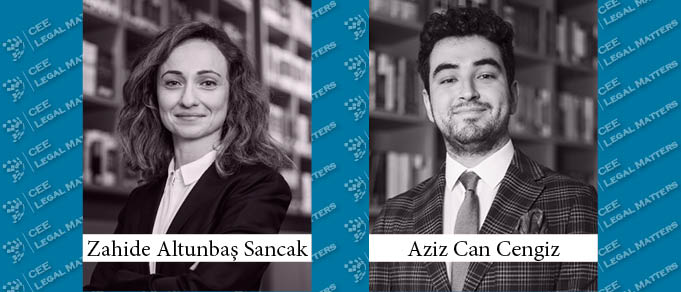Since the President's speech on December 20, 2021, "FX-Protected Deposit Accounts" have been at the forefront of talks on banking and finance applications. The instrument, of which the legal foundations were laid with Communiqué No. 2021/14 on Supporting the Conversion of Turkish Lira Deposit and Participation Accounts ["Communiqué"] published in the Official Gazette immediately following the speech, on December 21, 2021, found an ever-expanding field of application with amendments adopted in the following days and finally took its final form. In this article, we will examine FX-protected deposit accounts with their legal basis.
What is an FX-Protected Deposit Account?
An FX-Protected deposit account is a banking instrument individuals may prefer instead of their FX deposits [deposits in foreign currency], in which the opportunity cost arising from the appreciation of foreign currency types is guaranteed in case of an appreciation rate exceeding the determined TL interest rate on the maturity date of the deposit. Savings currently held in US Dollars, Euros and British Pounds can be converted into Turkish Lira and into a FX-protected TL time deposit account.
Who Is Eligible to Open a FX-Protected Deposit Account?
When FX-protected deposit accounts were first being discussed, it was announced that only real persons could benefit from the instrument. Indeed, legal entities were initially excluded from the scope of the Communiqué, as the scope was determined as “to regulate the procedures and principles regarding the support to be provided to deposit and participation fund holders in case FX-deposit accounts and foreign exchange denominated participation funds of real persons are converted into Turkish lira time deposit and participation accounts”.
At the current stage, this initial stance has been abandoned and the Communiqué was amended on 11 January 2021, this time allowing legal entities to open FX-protected deposit accounts. As a result, legal entities residing in Turkey, excluding banks and other financial organizations, might now benefit from this instrument in the current situation.
Real persons can register accounts with maturities of 3 or 6 months, or a year, whereas legal entities can only register accounts with maturities of 6 months or a year. Aside from that, there is no substantial difference in how individuals and legal persons can utilize the instrument.
There are no further limitations on the opening of FX-protected deposit accounts based on the country of origin, citizenship, nationality, or country of incorporation in case of legal persons. As a result, any natural or legal person residing in the country is eligible to register an account. Furthermore, the rule allows non-resident Turkish citizens working abroad, either as an employee or self-employed, to register an account.
FX Protection and Other Privileges Granted to FX-Protected Accounts
The one-week repo interest rate of the Central Bank of the Republic of Turkey ["CBRT"], commonly known as the policy rate in the public, has been determined as the lowest interest that a bank can pay to FX-protected deposit accounts within the framework of the Communiqué. Therefore, the minimum amount to be paid to the customer at the end of the maturity period will be the sum of the principal and the policy interest accruing during the maturity period. Banks can also set an interest rate higher than the CBRT's policy rate to be applied to FX-protected deposit accounts.
If the appreciation rate of the determined foreign currency during the maturity period is below the interest rate applied to the account, no further payment is made to the customer. However, if the exchange rate protection is activated, in other words, if the determined exchange appreciates in a rate above the interest rate, the difference between the appreciation and the interest amount must also be paid to the customer. In this case, while the bank pays the interest applied to the account, the CBRT pays the difference between the appreciation rate and the interest applied to the account. For example, if a customer deposits 10,000 TL in a FX-protected deposit account with 15% interest and a 1-year maturity, and the determined foreign currency appreciates by 10% in the same period, the bank will pay the customer 11.500 TL, consisting of principal + interest, because the appreciation of the currency remains below the interest rate. However, in the same case, if the currency appreciates by 20%, since the appreciation rate goes above the interest rate, 12.000 TL consisting of the principal + interest + FX appreciation is paid to the customer, and the 500 TL portion consisting of the difference between the interest and the appreciation rate is paid by the CBRT. While calculating the exchange rate difference payments, the buying rate for the US Dollar, Euro and British Pound, announced by the CBRT at 11:00 am every day, is taken as a basis. In case of withdrawal of money from the account before maturity, no appreciation payment is made by the CBRT.
In order to encourage FX-protected time deposit accounts, no deposit deductions are made from these accounts and no withholding tax is charged. However, there are ongoing debates about improving the privileges of FX-protected accounts and introducing some tax exemptions for account holders.
(In)Adequacy of Current Regulations
The Communiqué dated December 21, 2021, which currently constitutes the sole legal instrument regulating FX-protected deposit accounts, fails to encapsulate the entirety of the statements made by the administration on the subject and some aspects of the instrument that is already being used in application. For example, while it has been widely reported that a maximum interest rate was put in force for banks in FX-protected deposits, this application is yet to be regulated within the scope of the Communiqué. The fact that this, and other debate regarding FX-protected deposit accounts are still going on demonstrates the need for comprehensive legislation on the issue, preferably enacted by the Grand National Assembly. Otherwise, the absence of such legislation will invariably lead to debates on legal predictability and raise doubts about the instrument.
By Zahide Altunbas Sancak, Partner, and Aziz Can Cengiz, Attorney, Guleryuz & Partners
